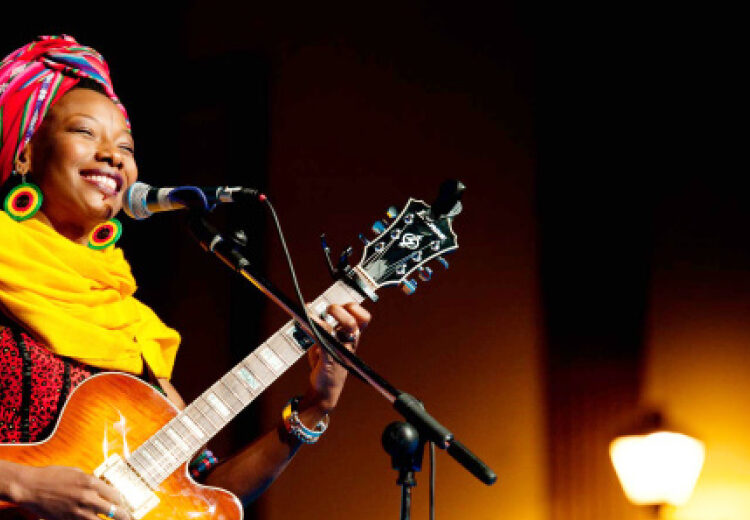The Entertainment industry has proven to be one of the sectors that has created the highest youth employment and has the capacity to create more jobs for our teeming youth.
This is because the industry thrives on talents, originality and creativity of its practitioners. The creative economy which emanated from this sector and its allied fields of endeavor which major product is our diverse culture.
With the advent of technology, a creative economy can be established and sustained.
According to a United Nations journal, the creative economy (also known as the orange economy) is an evolving concept based on the contribution and potential of creative assets to contribute to economic growth and development. It embraces economic, cultural and social aspects interacting with technology, intellectual property and tourism objectives.
From immemorial, Nigerians and the Nigerian spirit have been largely resilient and have forged out an entrepreneurial spirit, which if fully harnessed can yield a great harvest of fruits for the creative economy.
Arts and crafts (artistic products intrinsic in every culture), movie industry, the fashion industry, music industry and allied sub-sector like comedy are the seeds that when harnessed and developed in such a way that it generates revenue for the country will grow the creative economy. The issue before now is to make our assets- human capital and infrastructure, a money spinning product that will engender tourism and others.
The need to put a structure and create systems across the value-chain of our music, movie and other sectors, is what the handlers of the ministry of arts, culture and creative economy.
Gains of entertainment sector
The entertainment sector has experienced a bitter-sweet phase in a decade with the gains almost eclipsing the negatives. For an industry that seems the most unstructured, the music and movie sector has soldiered on based on the creativity and hard work of entertainers, musicians, actors and movie producers.
With shoestring budgets, Nigerian producers have made movies and epics that have become sold out, just like the likes of Tuface Idibia, Wizkid, Olamide, Burna Boy began their career with talent, hopes and the tutelage of a producer that saw the rough diamond in them waiting to be mined amidst a music label, sponsors that was concerned more on how to make money from them. So luck shone on them and they made fame. Other artistes from other genre of music have also struggled to make it as there was no structured window of artistes-producers-record label owners-show promoters platform that made it easy for them to focus on the craft and let the system work for them to realise their dream. According to a musician and movie director, Abay Esho, “for every Davido, Wizkid, Teni, Asake and Ayra Starr, there are scores of other musicians in their time that are as talented as the aforementioned stars but devoid of little opportunities and a potpourri of misfortune, lack of support system and perhaps lack of belief in themselves to make it”.
In the last five years, the entertainment sector has been put on the global map as music; movie and content from Nigerians have made waves. The attention has turned on our creatives and this has shown the potential of the entertainment industry.
The Nigerian film industry continues to grow at a rapid pace. The local industry is estimated to employ more than 1 million people and to generate more than US$7 billion for the national economy.
Financing the industry
Like all other ventures and industries, creating an enabling environment for the industry to thrive through proper regulation, easy access to capital and creating capacity building for the players in the industry and sustaining the good policies earmarked are what can drive the creative economy to success.
Last week, the Minister of Arts, Culture and Creative Economy, Hon Hannatu Musawa signed 617 million dollars partnership with the African Development Bank (AFDB). Tagged, the transformative fund, the $617 million investment In Digital And Creative Enterprise (IDICE) fund, is poised to unleash unparalleled growth with the potential to catalyse over one billion dollar of growth in the creative economy upon full deployment. This is a good step in right direction and more financing initiatives are expected.
The Minister, Musawa had stated that she is determined to leverage on the gains of the entertainment industry and ensure the industry increases its contribution to the GDP by growing the creative economy.
Media practitioner and music historian, Isaac Daniel stated that what the entertainment industry need is system creation where the different value chains of the sector is looked critically at and is developed generically.
He noted that harnessing our culture and its products remains a goldmine as our diversity and cultural heritage ought to be explored and forged into tourism initiatives.
“Entertainment, sports and developing the sectors to create enabling environment around them are area that the new government and its ministries should focus on. Developing our youths and their potentials still remain a policy framework that any government in any strata should pursue because your human capital development is always an asset that should be harnessed,” says Daniel.






